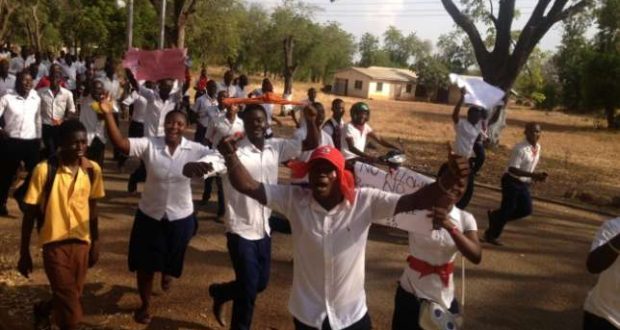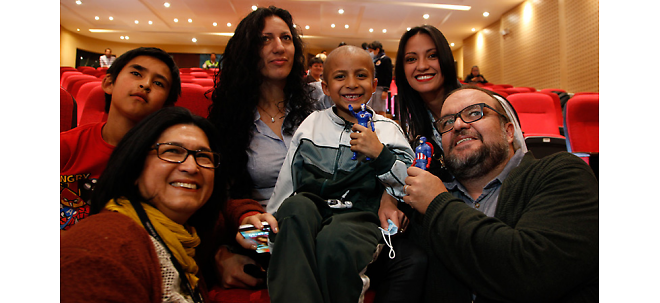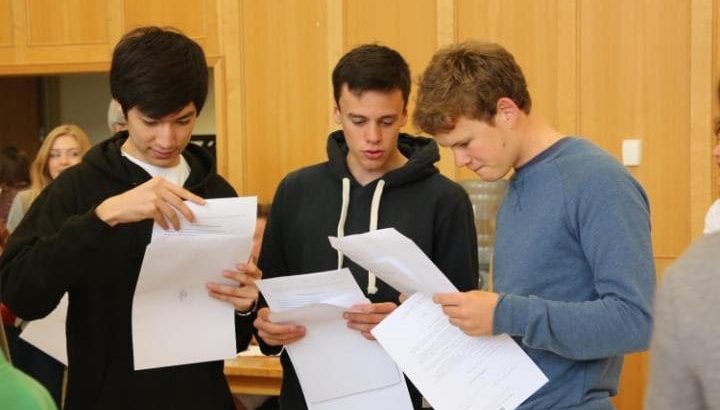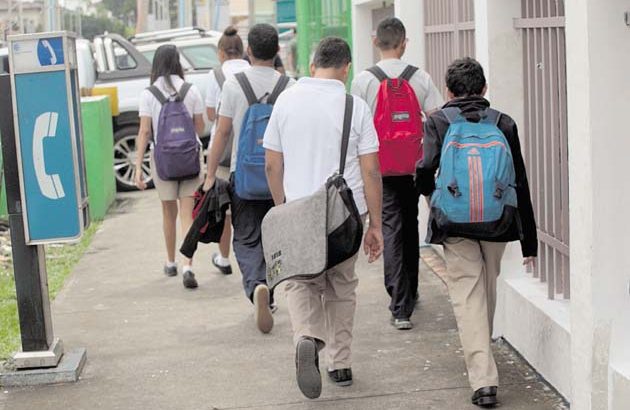Sudáfrica/Enero de 2017/Fuente: IOL
RESUMEN: Con la atención del país enfocada en la accesibilidad de la educación terciaria en los últimos meses, en medio de protestas generalizadas en las que participaron miles de jóvenes sudafricanos exigiendo educación universitaria gratuita, la Agencia Africana de Noticias (ANA) buscó reunir las perspectivas de los futuros estudiantes universitarios. Lo que han recibido hasta ahora los ha preparado para su próximo capítulo en la vida. Los reporteros de ANA hablaron a la clase Matric de 2016 mientras se preparaban para escribir sus exámenes finales en Ciudad del Cabo y áreas circundantes acerca de sus pensamientos sobre el sistema educativo de Sudáfrica, cómo se puede mejorar y si los ha preparado para la universidad.
With the country’s attention focused on the accessibility of tertiary education in recent months amidst widespread protests involving thousands of South African youth demanding free university education, the African News Agency (ANA) aimed to gather the perspectives of the country’s future university students on how the education they have received thus far has prepared them for their next chapter in life.
ANA reporters spoke to the 2016 Matric class as they prepared to write their final exams in Cape Town and surrounding areas about their thoughts on South Africa’s education system, how it can be improved, and whether it has prepared them for varsity.
Many pupils praised their schools for equipping them with the skills necessary to pursue further studies. The majority, however, expressed concern at the subpar nature of the education system in the country, in particular noting the lack of infrastructure and resources allocated to schools in poorer regions, putting those pupils at a significant disadvantage.
«In the poorer schools there is a lack of resources. If the government could produce more resources I think that would be much better,» said Nkosibonile Mahlangobeze, Head Boy of Isilimela High School in Langa. Mahlangobeze aspires to study Political Science and lead a career in politics.
Pupils who were able to afford higher quality private school or better of public school education also highlighted the inequality between schools in affluent regions and those that are disadvantaged.
«I think [that] the private schools and the schools we can afford to go to are much better in terms of the standard [of education] than the rest of South Africa currently receives,» said Alexandra Wittenberg-Scott, a pupil at Rustenburg High School for Girls in Cape Town’s leafy Southern Suburbs.
Wittenberg-Scott, who wants to study law, said: «But I know that a lot of South Africa doesn’t have the same benefits that we have.»
Yanga Gangasi, who attends Oscar Mpetha High School in Nyanga, said that education was very poor in his township and pupils were not safe at school. Gangasi, who also aims to study law, suggested that the government should provide more infrastructure, including computer and science labs to improve the quality of education in townships.
«The good side to this education is we are able to speak English, and we are able to solve some problems. But the bad side is we don’t have enough quality equipment to improve,» Chuma Poswa, also a pupil at Oscar Mpetha who wants to be a mechanical engineer, added.
Many students critiqued the lack of funding and neglect from the Department of Education, but expressed praise for their teachers.
«From the type of school [I come from] we are [not that] fortunate, but we are fortunate enough to have teachers who make use of what they have,» said Chulumanco Mawonga, a pupil at Portlands High in Mitchells Plain. When asked whether the education system had prepared her for varsity, she added: «I wouldn’t say it’s the Department of Education that has done that, but our teachers have made sure that we are on par with the things that we need to know.»
Mawonga, who wants to study law, psychology, or teaching, suggested that more frequent visits from the Department of Education would augment their ability to improve the quality of education that pupils received.
Matrics’ concerns extended beyond the lack of funding to schools, focusing also on the quality and method of teaching.
Le marco Jones, who also attends Portlands High, suggested that the current method relied mostly on pupils’ capacity to memorise the material they were taught. «It’s basically memory. If you have a good memory, you pass.»
Jones, who aspires to pursue future studies in film production and media studies, suggested that matriculants were «generally ill prepared» for the job market. High schools should be «more career oriented», he added.
Tamzyn Payne, a pupil at South Peninsula High School, who wants to study forensics, suggested that South African high schools prepared their students well for university in South Africa, but fell short of the standards of overseas institutions.
Similarly, Lusindiso Njodo, a pupil at Sebelius High School in Retreat, who aims to study either safety and security or film and media, remarked that the South African education system was «five years behind» the rest of the world.
At a time when government funding to the country’s tertiary education system is under public scrutiny, the unequal quality of schools observed by these matriculants indicate that investment in the country’s secondary education institutions, too, is deserving of attention.
Asked how she felt about the education system, Payne said: «They didn’t dream it. They didn’t make it as good as it could have been. And because of that it’s just carrying on without purpose.»
Fuente: http://www.iol.co.za/news/matric-results/sas-tertiary-education-system-needs-overhaul-matrics-7317720












 Users Today : 92
Users Today : 92 Total Users : 35405577
Total Users : 35405577 Views Today : 127
Views Today : 127 Total views : 3335486
Total views : 3335486